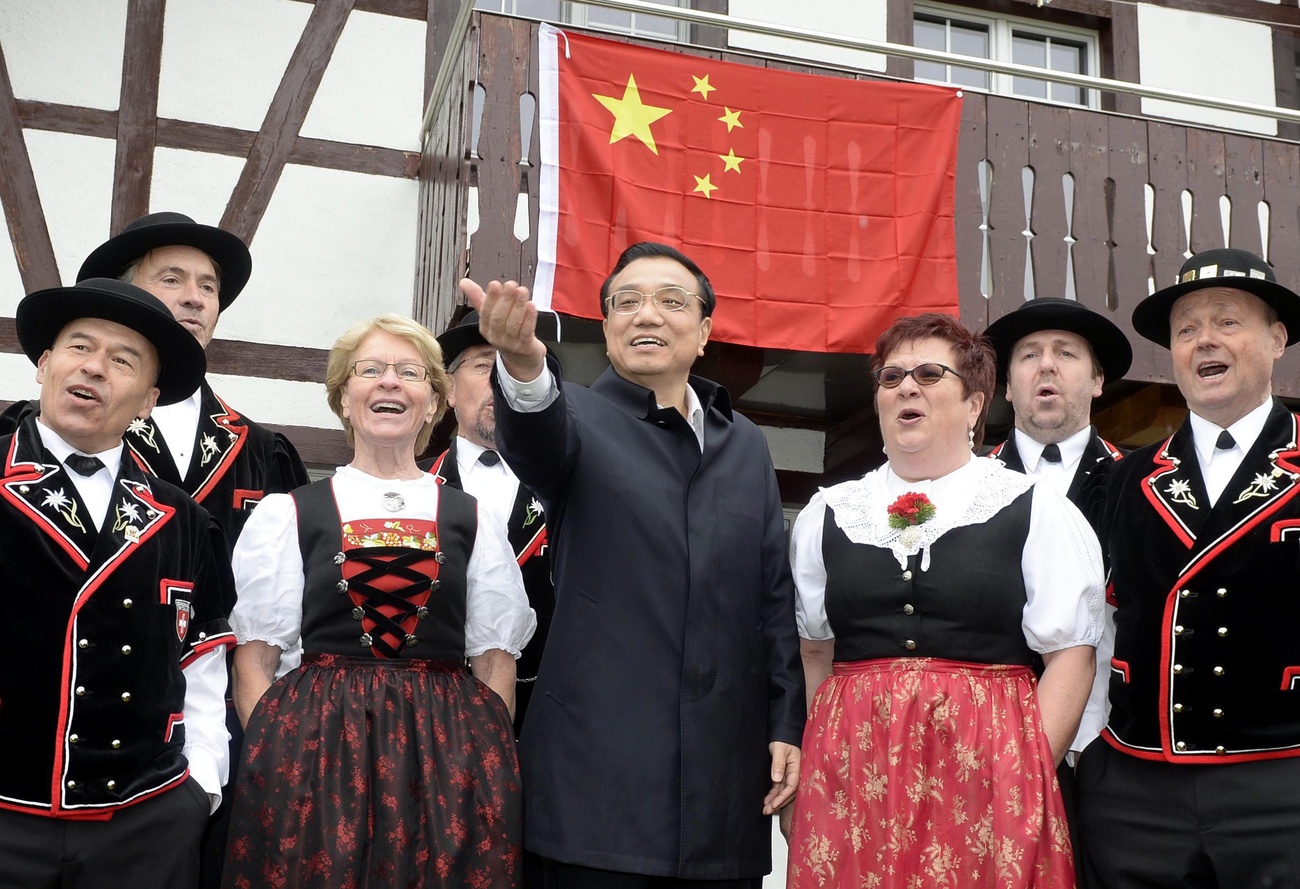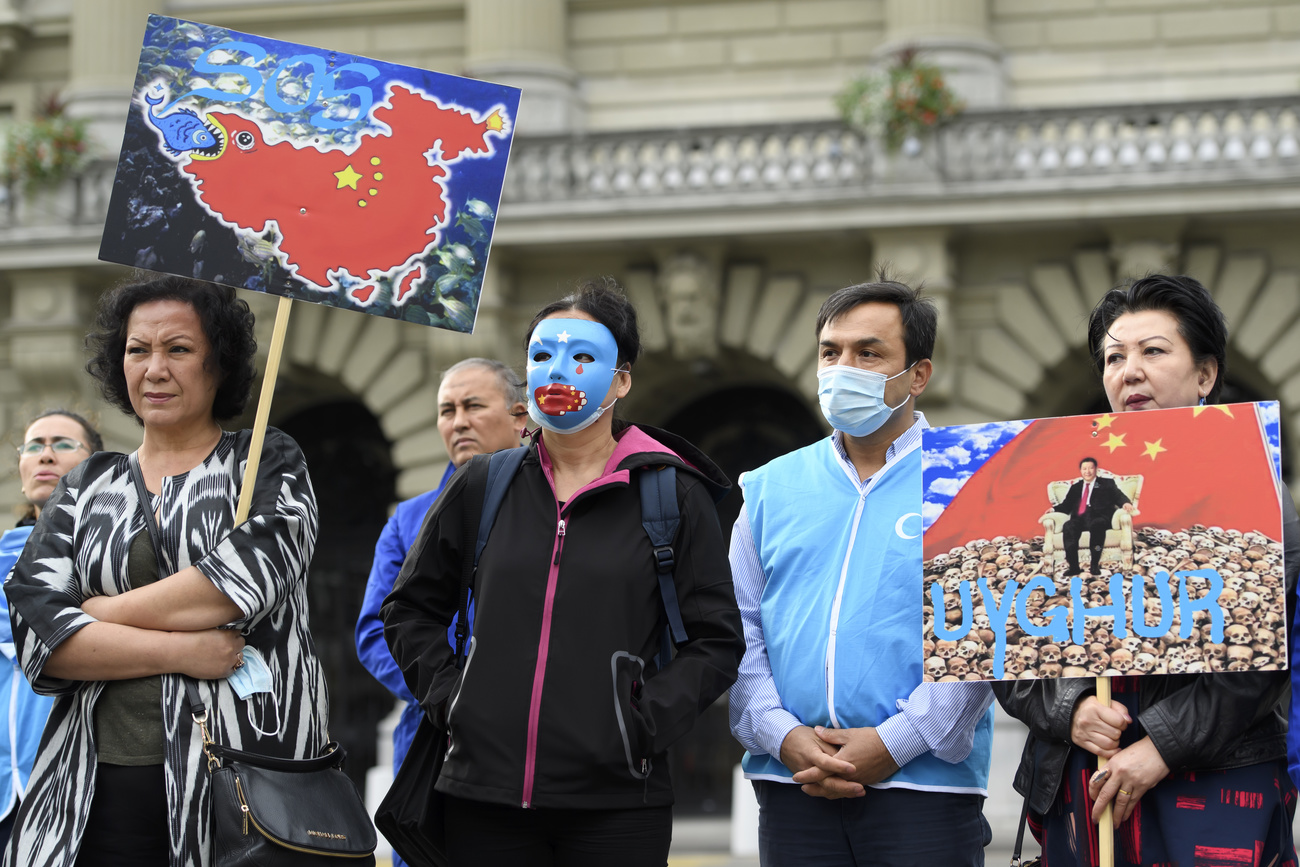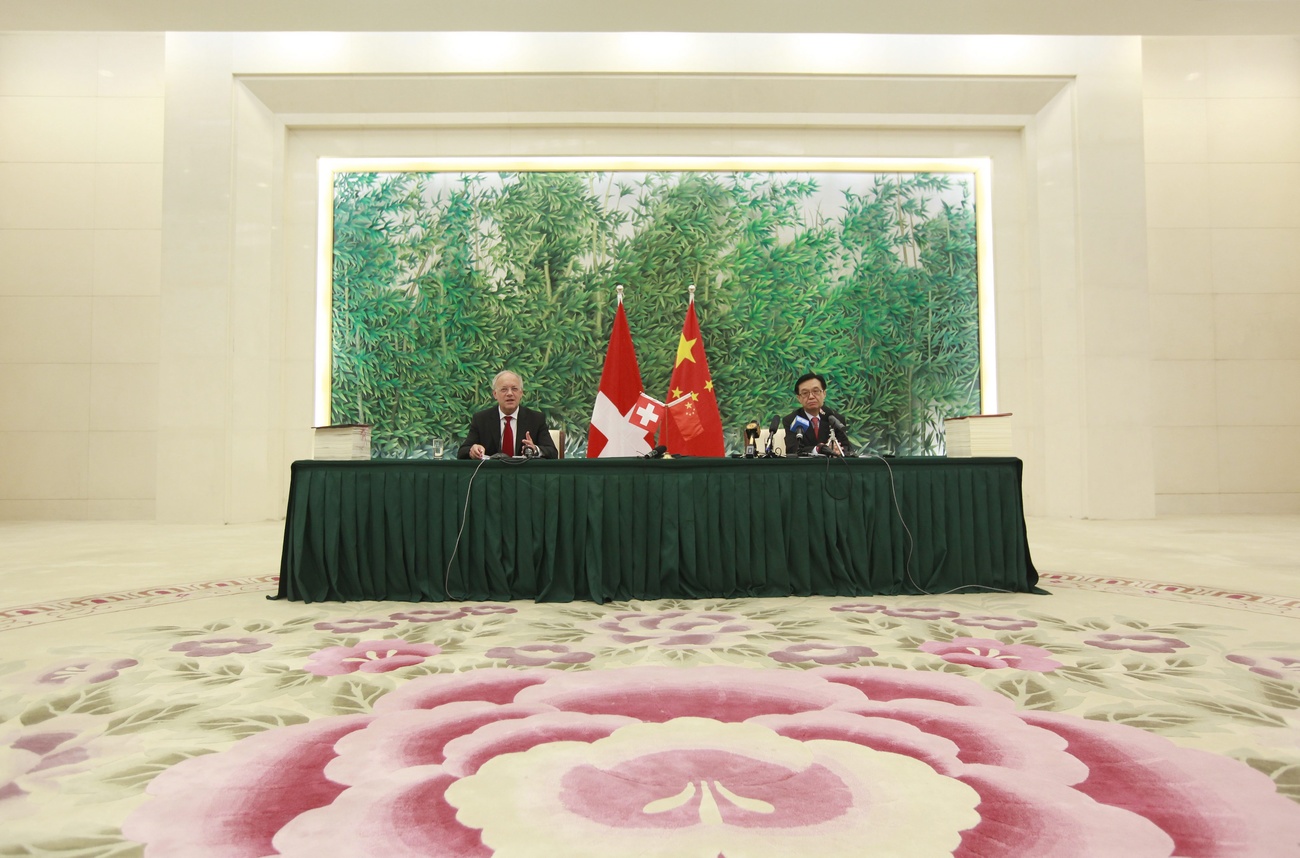Li Keqiang: the ex-Chinese premier who wanted open trade with Switzerland

The former Chinese premier died on Friday but his legacy lives on in the form of the historic free trade deal with Switzerland.
Li died of a heart attack on Friday at the age of 68, barely seven months after his retirement as China’s premier. Just over two months into the post he assumed in March 2013, Li embarked on his first official overseas trip. The first European country on his itinerary was little Switzerland.
“In Chinese culture, being ‘first’ always carries symbolic meaning. My choice of Switzerland is in no way haphazard: we have got a few important things to do here,” Li wrote in article titled “Why Switzerland?” in the Neue Zürcher Zeitung (NZZ) paper, a day before his visit.
One of these important tasks was concluding the free trade agreement (FTA) with Switzerland. Both countries had been negotiating a deal since 2011 and finally there was light at the end of the tunnel after nine rounds of dealmaking discussions. It was during Li’s official visit that a Memorandum of Understanding on Concluding the Negotiations for the FTA was signed and later ratified in April 2014. The FTA officially entered into force in July 2014 guaranteeing zero tariffs on 99.7% of Chinese exports to Switzerland and 84.2% of Swiss exports to China.
Swiss opportunity
“Opening up to the world over the last 30 years and more has closely integrated China with the rest of the world,” Li declared during a special address at the 40th World Economic Forum (WEF) annual meeting in Davos in 2010. He was the vice premier then and was making a case for investing in China.
An FTA with Switzerland presented itself as an opportunity to integrate China’s economy with mainland Europe and a top 20 economic power. The only other countries to succeed in obtaining an FTA with China until then were New Zealand (2007) and Iceland (2013) but they were relatively small economies.
Attempts in 2004 to enter into negotiations with the European Union over a Partnership and Cooperation Agreement (PCA) failed after disagreements over Taiwan and refusal of the EU to recognise China had reached market economy status. Switzerland, on the other hand, had recognised China’s market economy status as far back as 2007 and was more amiable for dealmaking.
“At the time, trade between the two countries was high and the Federal Council expected it even to grow considerably. Xi Jinping, who also emphasised international trade, had only started his power grab within the party, which means that Li Keqiang was not yet sidelined in the way he would be later on,” says Ralph Weber of the Institute for European Global Studies at the University of Basel.
According to him, the two countries had already started investigating the possibility of such an agreement under the leadership of Hu Jintao and Wen Jiabao, which meant the deal was largely concluded by the time Li Keqiang became prime minister.
It was not all smooth sailing on the Swiss side. The Social Democrats were against the FTA in its current form and tabled a motion to negotiate an additional clause that would require the protection of human rights to be mentioned explicitly in the deal. However, the motion was defeated in parliament.
Future relations
China and Switzerland said in 2017 they would launch a joint study to explore upgrading the current FTA. However, no progress has been made on this front so far. Political differences could be one reason.
Dialogue on human rights stalled after Switzerland supported a United Nations demand in 2018 for the closure of controversial Uyghur camps in China’s Xinjiang region. Talks only resumed this year even though the Swiss parliament voted for closer ties with counterparts in Taiwan.
On the other hand, Switzerland refused to follow the EU in imposing sanctions on some Chinese individuals and companies over alleged human rights abuses targeting the Uyghur population. The Alpine nation has also stuck to its “One China” policy, which mandates keeping diplomatic relations with only one sovereign state recognised under the name of China.
“There are many reasons why Swiss-Chinese relations are more strained and face more challenges today, but one of them is certainly the resurgence of the Communist Party under Xi’s leadership as the main power and if necessary, at the cost of the economy, something that Li Keqiang is said to have been more sceptical about,” says Weber.
However, Weber warns that while Li prioritised the economy and international trade, he did not seek to fundamentally challenge the leadership of the Communist Party. His reputation as a reformer should be seen in this context.
“The term should not be misread as a ‘political reformer’ in the sense of advocating democracy in any substantial meaning of the term,” says Weber.

In compliance with the JTI standards
More: SWI swissinfo.ch certified by the Journalism Trust Initiative












You can find an overview of ongoing debates with our journalists here . Please join us!
If you want to start a conversation about a topic raised in this article or want to report factual errors, email us at english@swissinfo.ch.